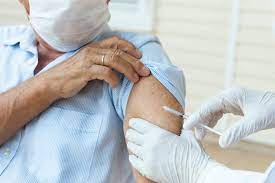Cultural Competency in Healthcare
- Nov 25, 2022
- 2 min read
Cultural competency is one’s ability to acknowledge and respect the unique beliefs and experiences of people with different cultural backgrounds.
In the healthcare industry, this is especially important as it helps ensure proper care for all people. Cultural competency can be particularly crucial within marginalized communities by minimizing bias and increasing trust amongst patients and their healthcare providers, ultimately playing a positive role in accurate diagnoses.
As time goes on, the medical community grows more adept at patient-provider communication, yet not all people believe that doctors and nurses understand their unique situations. This is reflected in many research initiatives - for instance, studies conducted at Stanford University have shown that Hispanic people in the United States tend to delay doctor’s visits because if they don’t understand the healthcare system, and that Black men are more likely to communicate health concerns to a Black doctor.
Further, not all physicians feel fully equipped to give the best possible care to patients based on their levels of cultural competency, in fact, a 2015 study found that many medical students and physicians felt underprepared to see transgender or queer patients.
To address the disparities faced by people of different social, economic, religious, and other backgrounds, healthcare professionals must be able to stay aware of inherent biases, as well as how they can translate into diagnoses for patients. Cultural literacy and competency therefore play a large role in patient care, especially since patients feel most comfortable with physicians who understand their culture and background.
If this awareness is so important, how can we help effect positive change in the medical field? One way is through the next generation of doctors, nurses, and surgeons. Exposure to diverse environments and identities can help improve cultural competency in medical students, who will be able to enter the workforce as a more effective force for keeping their communities safe and healthy.




Comments